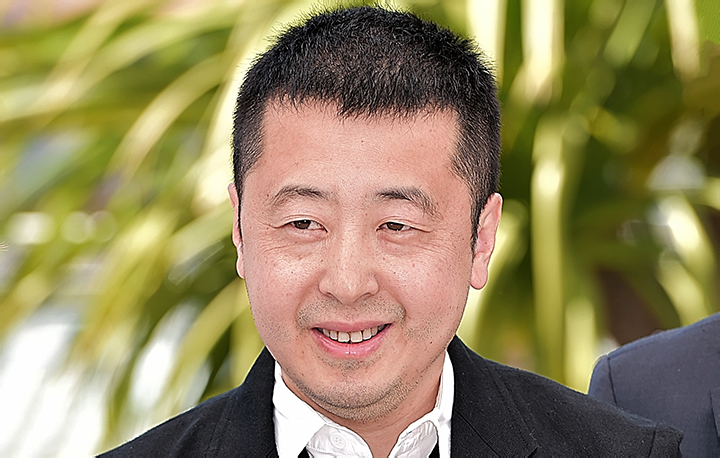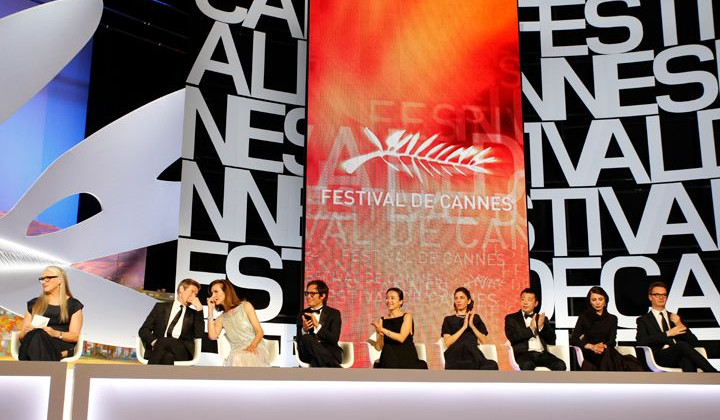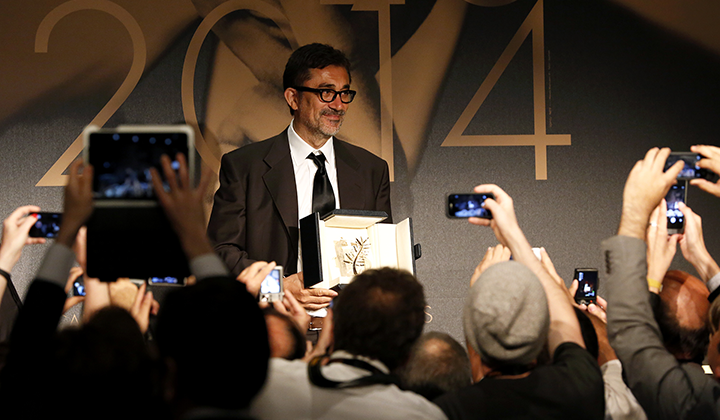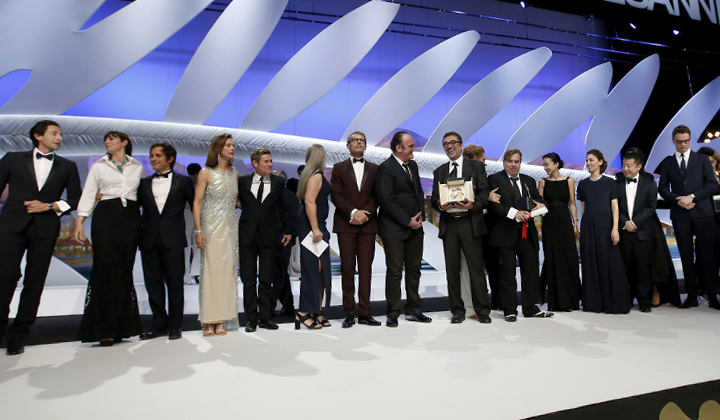
INTERVIEW – Jia Zhangke: “When I make a film, I try to be as sincere as possible”

A key figure in the China's independent film industry, Jia Zhangke has proved that his socially engaged films with their painstaking mise en scène were a safe bet. Over the past ten years, he has presented four films at the Festival de Cannes. In 2013 A Touch of Sin won the award for best script. In 2014, it is in his role as Jury member for 67th Festival that he has agreed to meet with us. An interview with an inspired director.

© AFP / AP
This year you are a Jury member for the 67th Festival de Cannes. As the winner of an award for A Touch of Sin in 2013, what contribution do you think the Festival makes to the vitality of the world's film industry?
The Festival is the best place in the world to show a film. For A Touch of Sin, it was the world premier. It is a place totally dedicated to films and the most effective place to talk about what you see. It is always a very impressive and unforgettable moment. The ceremony of film that holds sway here really makes you feel like a true director and that makes you very humble and respectful.
A Touch of Sin was inspired by King Hu's A Touch of Zen, released in 1971. How did the director inspire you?
First of all, I am very happy that Dragon Inn has been restored and presented at Cannes Classics this year. King Hu belongs to the Chinese generation from the end of the 1960s, beginning of the 1970s, a period of transition for us in China. It was a moment of incredible dynamism, when Chinese society was in the throes of the Cultural Revolution. King Hu's films are of course feature-length martial arts films, but the message is very modern, they represent a contemporary vision of Chinese society. A story in the past that shows the present.
Every country has its own film history. In France, the Nouvelle Vague overturned the traditional codes of cinema and mise en scène. Could you tell us about the particular qualities of the Sixth Generation of Chinese filmmakers?
All the directors who form what we call the Sixth Generation, and of which I am a part, have something in common: we grew up at the end of the 1970s, at a turning point in Chinese society. It was a rapid, powerful change. We were very soon affected by the changes in society and relations between individuals and these are our preferred themes.
In your films you incorporate the presence of social media, highlighting their predominance in China. They are also very important in your career. What is your stance on new communication technology?
The internet has obviously transformed people's vision of the world and their relationship to it. The view I had of my country as a child, the world in general has completely changed. The codes, the rules and the possibilities have changed: for example, in China a person living in the country could never have imagined they could communicate with a person living in a big city or abroad. For me, it is very important to evolve with these changes. Millions of people follow me on Chinese social networks, I like to share important information with them, to have an exchange.
Your work is particularly popular with China's younger generation. In your opinion, what does it take away from your films?
When I direct a film, I try to be as straightforward and sincere as possible. For example, I don't place my film project within a commercial framework. All over the world, people say "oh, this film would be perfect for young people!" the age of my audience isn't very important, I don't think about a particular age bracket, I just make my film. I don't know if I provide answers but I know that young people are not a market.
For your next project, you have decided to film outside of your home country of China and will be working in Australia. Are you at all apprehensive or do you feel a new impetus?
My next film will be called Mountains May Depart. It will span the period 1999 to 2025, and will be my first time filming science fiction. I am not particularly worried given that I have already worked a lot with foreign partners and I think there is no reason to be afraid about how the film will be made. I am not afraid of any limits.
Quotes selected by Hannah Benayoun


